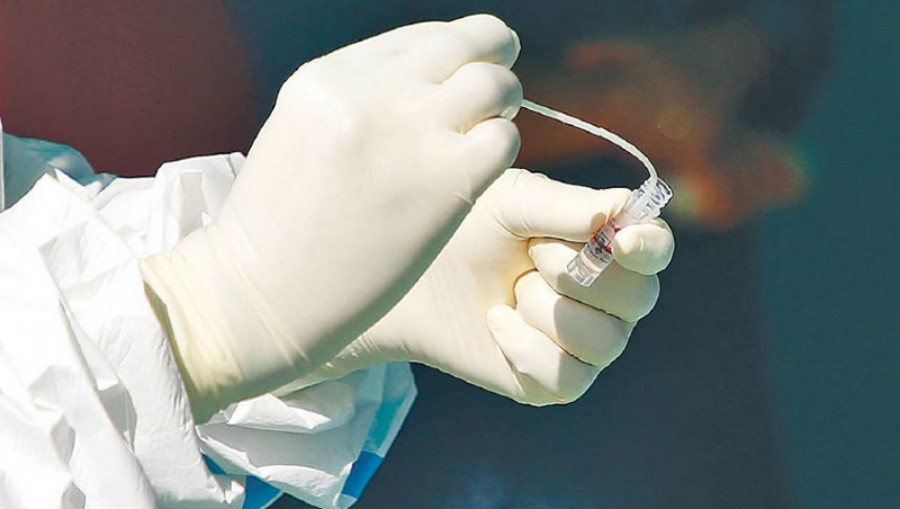Health
A year of pandemic teaches a lot, but lessons not learned
Public health experts say the Covid-19 crisis exposed a lot of weaknesses, which could be used as an opportunity to improve and prepare for the future.
Arjun Poudel
At least two new coronavirus variants—N440K and E48K—are spreading faster in some states of India in recent days, after a consistent decline in new cases. Along with that, several cases of new variants first detected in the United Kingdom, Brazil and South Africa have also been recorded in India.
However, authorities in Nepal have decided to enforce mandatory quarantine for five days to only those arriving from the United Kingdom and South Africa.
Over 2,000 people return to the country via the international airport and thousands of others enter from India via various land crossings every day.
“The pandemic, which started a year ago, exposed a lot of our weaknesses,” Dr Anup Subedee, an infectious disease expert, told the Post. “We could have used the pandemic as an opportunity to strengthen our system and improve our weaknesses but I think our preparation level is not different from before the start of the pandemic.”
Nepal had recorded three cases of a fast spreading new variant of the coronavirus, the one identified in the United Kingdom in December.
The Epidemiology and Disease Control Division said that at least 13 suspected cases of the new variant have been found in Kathmandu and Pokhara. Samples of those people, who came in close contact with the people returning from abroad, were found positive in the polymerase chain reaction tests but negative for s-gene targets.
S-gene target or spike protein is one of the key biological characteristics of SARS-CoV-2, which enables the virus to penetrate host cells and cause infections.
Without spike protein, the coronavirus cannot infect people but doctors say that if the polymerase chain reaction tests are failing to detect the spike proteins in the swab samples of the infected people or negative s-gene target, there is a possibility that the virus may have undergone mutations or the virus could be of a different variant than the one commonly found in the country.
“But no one is monitoring the mutation of virus variants within the country or those that might have come from abroad,” an official at the Department of Health Services, told the Post, asking not to be named. “We have asked people who return from abroad to stay in home quarantine but no agency is monitoring if those people have been following the instructions or not.”
New cases of Covid-19 have seen a steady decline over the past months. But doctors say that negligence towards the risks could be too costly for the nation.
“We should not forget that countries which have successfully contained the spread of infections have been forced to reinforce restrictions due to a rise in new cases caused by new variants,” Dr Sameer Mani Dixit, director of research at the Center for Molecular Dynamics Nepal, told the Post. “We cannot rule out that such conditions will not repeat in our country. But I think we are not prepared for a rise in new infections or another pandemic.”
Doctors say there is a chance for the country acquiring infections seen in any corner of the globe due to people’s movement. And even if the pandemic continues, there is a chance of several emerging diseases spreading in the country.
“This is not the first and nor last pandemic but it exposed our weaknesses, and the capacity of our healthcare care system,” added Dixit. “It taught an important lesson that when a contagious disease spreads throughout the country, everything gets affected and we need to be prepared.”
The coronavirus pandemic not only infected and killed the people but it also hit the health care system hard. Most of the achievements made over the years in health care sectors—maternal health, child health, nutrition, tuberculosis and mental health among others—have been affected.
“The ongoing pandemic teaches us what kind of preparation is needed to deal with a potential new infection, and what kind of alternative arrangements should be made to continue other health services,” Dr Keshav Deuba, a public health epidemiologist, told the Post. “But I think we will suffer the same consequences, if a second wave of the coronavirus comes or any other new infection spreads.”
Doctors say the government should have set up whole-genome sequencing technology at state facilities and shown concern to use the technology available at private centres. Instead of dismantling isolation and quarantine facilities, they should have been improved. Health workers should be trained and prepared psychologically to handle cases, and polymerase chain reaction test laboratories should be utilised properly.
“Active case findings are important not only at present but also in future, which should be done on a regular basis,” added Deuba. “We should focus on it. Awareness also plays an important role in the success of any programme, authorities should pay attention to it.”
Experts say separate mechanisms should be created to deal with major epidemics and pandemics, as the existing multiple layers did not work properly for various reasons.




 8.79°C Kathmandu
8.79°C Kathmandu















